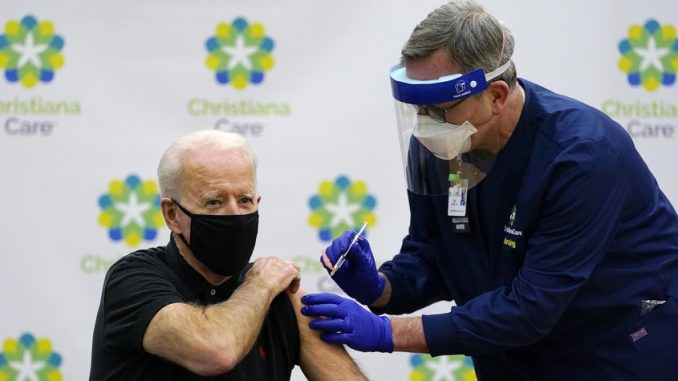
Someone in the federal bureaucracy has evidently come around on that logic. According to the WSJ, Americans will be asked to wait six months from the date of their second dose to get a third, not eight.
Federal regulators are likely to approve a third Covid-19 shot for vaccinated adults starting at least six months after the second dose rather than the eight-month gap they previously announced, a person familiar with the plans said, as the Biden administration steps up preparations for delivering boosters to the public…
The Biden administration and companies have said that there should be enough supply for boosters. The U.S. has purchased a combined 1 billion doses from Pfizer and Moderna…
Pfizer and BioNTech said Wednesday that the third dose generated a stronger immune system [response in trials] against the original Covid-19 strain compared with the original two-dose course.
The submission includes data from a late-stage trial of 306 subjects between 18 and 55 years who received a third dose between 4.8 and eight months after completing the two-dose course of vaccination, Pfizer said. Neutralizing antibodies—which play a key role in the immune system—were more than three times as much when measured one month after the third dose, compared with one month after the second dose.
Boosters have been rolling out in Israel only since the start of the month, though, too late to hold back a gigantic wave. I assume the feds are looking at this case curve and thinking, “Why wait a second longer on third doses than we have to?”

Yesterday was one of the worst days there of the entire pandemic with a per capita case count equivalent to more than 300,000 in the U.S. “In a Sunday press conference,” the Daily Beast reported, “the directors of seven public hospitals announced that they could no longer admit any coronavirus patients. With 670 COVID-19 patients requiring critical care, their wards are overflowing and staff are at breaking point.” It’s hard to believe a country that was at double-digit case counts nationally two months ago is facing a crisis again, but between their disaster and what we’re coping with in the south at the moment, it would be madness to delay the boosters unnecessarily.
I wonder too if the feds looked at the early data coming out of schools and figured they should make parents eligible for boosters ASAP to try to limit the amount of household contagion after kids bring the virus home. NPR published a story a few days ago about vaccinated moms and dads ending up sick as dogs after their kids returned from play dates or soccer matches and infected them. “Nationwide between Aug. 5 and Aug 12, about 121,000 children tested positive for the virus, according to the American Academy of Pediatrics and the Children’s Hospital Association. That’s a 23% increase over the prior week,” the outlet reported. The Charleston County School District in South Carolina recently found that “even with only sports practices and summer camps underway, positive Covid-19 cases among public-school students in the last month were on track to surpass those seen in all of the fall semester of 2020.”
I’ll leave you with the head of Pfizer looking ahead to when we get a new variant that can evade the vaccines entirely.
Pfizer CEO Dr. Albert Bourla says that a vaccine-resistant COVID variant will “likely” emerge. pic.twitter.com/TQhITNY0FM
— The Recount (@therecount) August 24, 2021
Via Hot Air
